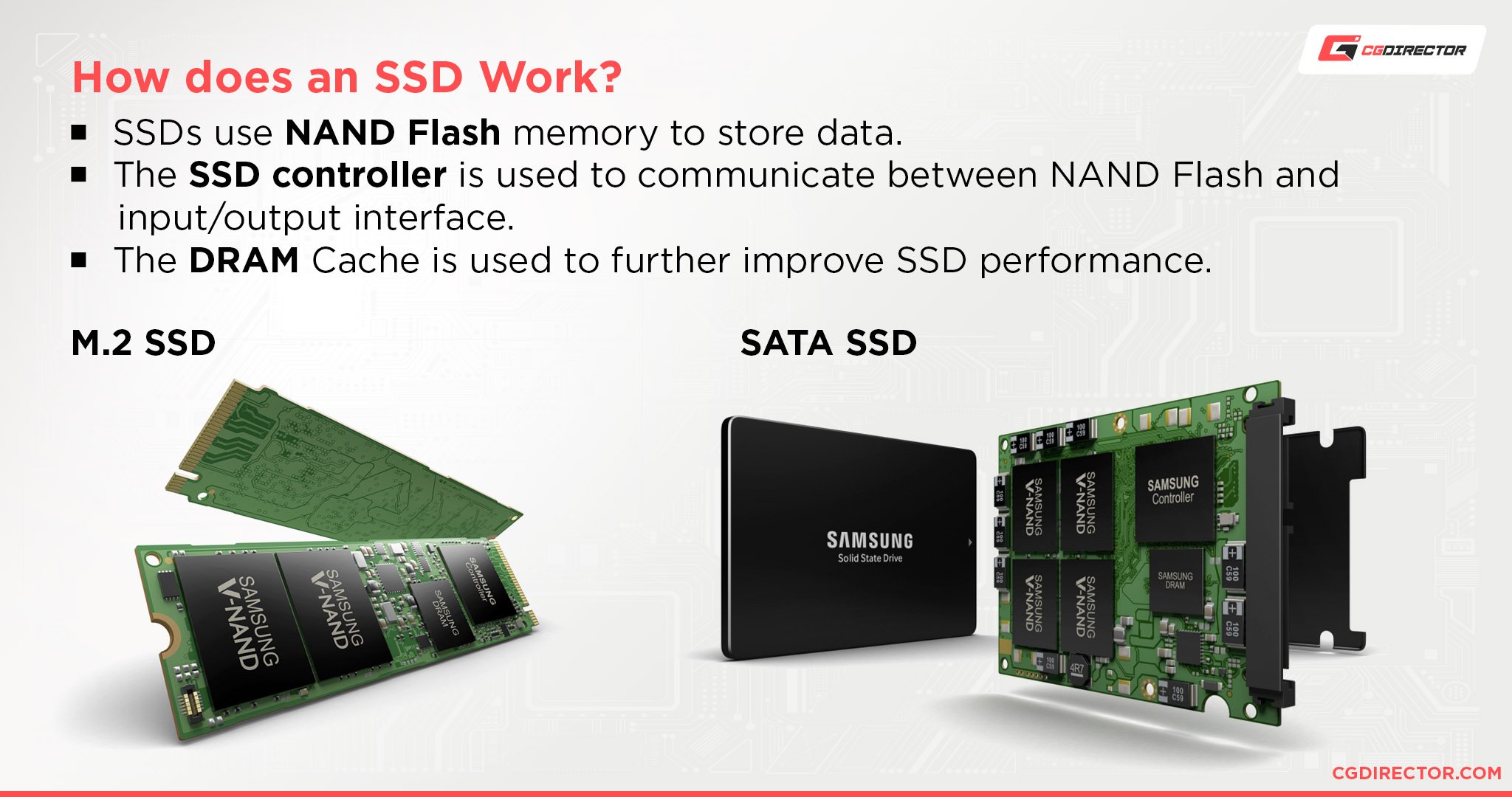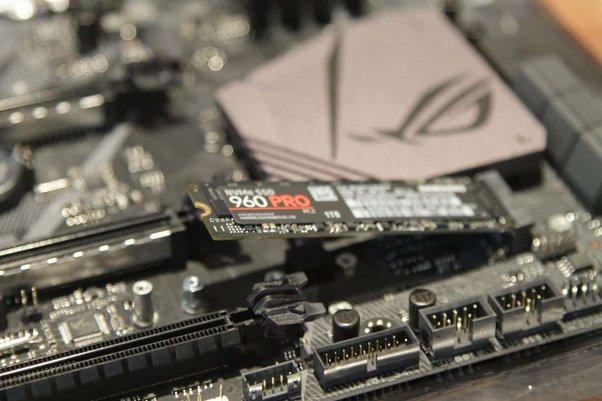Yes, you can have 2 SSDs in your PC. Having multiple SSDs can enhance storage and performance.
Upgrading your computer with additional SSDs can significantly improve speed and efficiency. With the ability to run multiple applications simultaneously and quicker access to data, integrating two SSDs into your PC can provide a seamless computing experience. Whether you are a gaming enthusiast, content creator, or simply looking to optimize your workflow, having two SSDs allows for smoother multitasking and faster load times.
In this digital age where storage and speed are crucial, adding a second SSD to your PC can make a notable difference in your overall computing performance.
:max_bytes(150000):strip_icc()/6-0094128015f74a7c84f1011743f4d556.jpg)
Credit: www.lifewire.com
Why Two Ssds In A Pc Can Be Beneficial
Having two SSDs in a PC can offer significant benefits, providing both increased storage capacity and improved system performance. Let’s delve into the advantages in detail.
Increasing Storage Capacity
Having two SSDs in your PC can effectively double your storage capacity, enabling you to store more data, applications, games, and multimedia files without worrying about running out of space. With the installation of a second SSD, you can better organize and segregate your data, thereby ensuring faster access times. This can be particularly advantageous for professionals working with large files or individuals with extensive media collections.
Improving System Performance
Incorporating two SSDs into your PC configuration can significantly enhance system performance. By distributing the workload between the two drives, you can improve read and write speeds, reduce load times, and enhance overall system responsiveness. Utilizing the additional storage capacity for frequently accessed files or as a dedicated drive for your operating system can also contribute to faster boot times and smoother multitasking, effectively optimizing your computing experience.
Types Of Ssd Connections
Sata
SATA is a common connection type for SSDs offering good speed and compatibility.
M.2
M.2 SSDs are small and fit directly into the motherboard, providing faster speeds.
Pcie
PCIe SSDs connect through the PCIe slot for ultra-fast data transfer rates.
Installing Two Ssds In A Pc
Installing two SSDs in a PC can significantly enhance your system’s performance and storage capacity. Pairing SSDs is a popular choice among tech enthusiasts seeking faster boot times and improved workflow efficiency. In this guide, we’ll walk through the process of equipping your PC with dual SSDs for optimal functionality and speed.
Choosing The Right Ssds
Ensure compatibility and performance by selecting SSDs with adequate capacity and read/write speeds to meet your needs.
Preparing The Pc For Installation
Back up important data and shut down the PC before initiating the installation process. Ground yourself to prevent static discharge.
Physical Installation
Locate available SATA ports on the motherboard and secure the SSDs onto the mounting brackets inside the case. Connect the power and data cables.
Configuration And Formatting
Access the BIOS to detect the SSDs and configure the storage settings. Install the operating system on one SSD and format the other for additional storage.
Raid Configurations For Dual Ssds
When it comes to enhancing the performance and redundancy of your PC’s storage system, having 2 SSDs in your PC can be a game changer. Understanding the various RAID configurations for dual SSDs, such as RAID 0, RAID 1, and RAID 5, can help you optimize performance and data security.
Raid 0: Striping
RAID 0, also known as striping, involves splitting data across two SSDs, thereby effectively doubling the read and write speeds. This configuration enhances performance by allowing data to be processed in parallel. However, it’s important to note that RAID 0 does not provide redundancy, meaning a failure in one SSD would result in the loss of all data.
Raid 1: Mirroring
In a RAID 1 configuration, the data is mirrored between two SSDs, providing a backup in case one drive fails. While this configuration does not improve performance, it offers redundancy and data security. If one SSD fails, the system can continue to function using the mirrored drive, ensuring no data loss.
Raid 5: Parity
RAID 5 distributes parity along with the data across multiple SSDs. This configuration balances performance and redundancy, as it provides an efficient combination of speed and fault tolerance. In the event of an SSD failure, the data can be rebuilt using the parity information stored across the SSDs.
Advantages And Disadvantages Of Using Dual Ssds
Using dual Solid State Drives (SSDs) in your PC can offer both advantages and disadvantages. In this article, we explore the benefits and drawbacks of using dual SSDs. Let’s take a closer look.
Advantages
There are several advantages to using dual SSDs in your PC:
- Increased Storage Capacity: By utilizing two SSDs, you can effectively double your storage capacity, allowing you to store more files, applications, and multimedia content.
- Improved Performance: Having two SSDs in a RAID (Redundant Array of Independent Disks) configuration can significantly boost your PC’s performance. With data distributed between both drives, reading and writing speeds are substantially improved, resulting in faster file transfers, quicker boot times, and smoother application loading.
- Redundancy and Data Protection: In a RAID setup, one SSD can act as a backup for the other. If one drive fails, you won’t lose your data as it is mirrored on the second drive. This redundancy offers added protection against hardware failures and data loss.
Disadvantages
However, there are a few disadvantages to consider:
- Cost: Dual SSD setups can be more expensive than using a single SSD. You have to invest in two solid-state drives, which can add to the overall cost of your PC build.
- Higher Power Consumption: Running two SSDs simultaneously requires more power compared to a single drive setup. This increased power consumption may result in slightly higher electricity bills.
- Complex Setup: Setting up and configuring dual SSDs in a RAID array can be more complex compared to a single SSD installation. It requires knowledge of RAID configurations and may involve changes to your system BIOS settings.
Before deciding to use dual SSDs, carefully evaluate the advantages and disadvantages mentioned above to determine if it suits your specific needs and budget. Dual SSDs can provide increased storage capacity, improved performance, and data protection, but they also come with a higher cost, increased power consumption, and a more complex setup process.

Credit: www.reddit.com
Common Faqs About Using Two Ssds In A Pc
Yes, you can have 2 SSDs in your PC. It can improve storage capacity and performance. It’s essential to ensure compatibility with your motherboard and have proper cooling for both drives.
Can I Mix Ssd Types?
Yes, you can mix different types of SSDs in your PC without any issues. SSD stands for Solid State Drive, which refers to the type of storage technology used. There are various types of SSDs available in the market, such as SATA SSDs and NVMe SSDs. SATA SSDs are the most common and affordable type, while NVMe SSDs offer faster speeds. Mixing these two types will not cause any compatibility problems, allowing you to take advantage of the benefits offered by each.Can I Use Different Storage Capacities?
Certainly, you can use SSDs with different storage capacities in your PC. Whether you have a 250GB SSD and want to add a 1TB SSD or vice versa, it is entirely possible. When using multiple SSDs, your PC will recognize each drive and assign different drive letters to them. This way, you can easily manage data across the different drives according to your storage needs. It’s a convenient way to expand your storage capacity without replacing your existing SSD.What About Power Consumption?
Using two SSDs in your PC doesn’t significantly impact power consumption. SSDs are known for their low power consumption compared to traditional hard drives, making them energy-efficient storage solutions. Even if you have two SSDs installed, you will notice minimal effects on your overall power usage. This makes SSDs an excellent choice for those who are conscious about energy consumption or have power-sensitive setups.Does Having Two Ssds Affect Boot Times?
No, having two SSDs does not affect boot times. In fact, it can even improve your system’s boot performance. SSDs offer faster read and write speeds compared to traditional hard drives, resulting in quicker boot times. So, if you have multiple SSDs in your PC, you can expect your system to boot up faster, allowing you to get to work or enjoy your favorite games and applications without unnecessary delays. In conclusion, mixing SSD types, using different storage capacities, power consumption, and boot times are common concerns when using two SSDs in a PC. However, it’s important to note that these factors do not pose any major issues. You have the flexibility to mix SSD types and capacities, while power consumption remains low. Additionally, the boot times are not negatively affected. So, go ahead and enjoy the benefits of having two SSDs in your PC without worrying about any significant drawbacks.Best Practices For Managing Dual Ssds
When it comes to maximizing the performance and longevity of your dual SSD setup, employing the best practices for managing dual SSDs is crucial. Here are some essential guidelines for ensuring your dual SSDs operate at their best:
Maintaining Proper Airflow And Cooling
Maintaining proper airflow and cooling within your PC case is vital to prevent overheating of your SSDs. Ensure that your PC case has adequate ventilation to allow cool air to circulate around the SSDs, preventing heat buildup that can decrease their performance and lifespan.
Regularly Updating Firmware
Regularly updating firmware is crucial to ensure that your SSDs are running on the latest software with performance enhancements and bug fixes. Periodically check for firmware updates from the SSD manufacturer’s website and install them as recommended.
Monitoring Drive Health
Monitoring drive health is essential to preemptively detect any signs of potential issues with your SSDs. Utilize drive health monitoring tools provided by the SSD manufacturer to keep an eye on the overall health and performance of each SSD.
Backing Up Data
Backing up data is critical in the event of SSD failure. Ensure that you regularly back up your data to an external storage device or cloud service, safeguarding against any data loss due to unforeseen SSD issues.
Tips For Optimizing Performance With Dual Ssds
Maximize the performance of your PC by utilizing two SSDs effectively. Follow these tips to get the most out of your dual SSD setup:
Using One Ssd For System Files And Applications
Dedicate your first SSD to system files and applications for faster boot times and snappier performance.
Using The Second Ssd For Storage And Games
Allocate the second SSD for storage and games to keep your main drive clutter-free and improve access speeds.
Enabling Trim Support
Turn on TRIM support to enhance the lifespan and performance of your SSDs by optimizing data management.
Disabling Hibernation
Eliminate hibernation to save disk space and prevent unnecessary write operations on your SSDs, prolonging their lifespan.
Future Trends And Advancements In Ssd Technology
Future trends and advancements in SSD technology are shaping the way we interact with data storage. From increasing storage capacities to faster read and write speeds, SSDs are revolutionizing the way we use our computers.
Increasing Storage Capacities
SSD technology is continually evolving, with manufacturers pushing the boundaries of storage capacities. Larger storage capacities allow users to store more data while maintaining fast access speeds.
Faster Read And Write Speeds
SSDs offer lightning-fast read and write speeds, significantly reducing loading times and improving overall system performance.
Improved Reliability And Endurance
Advancements in SSD technology have led to enhanced reliability and endurance, providing users with a more dependable storage solution for their data.

Credit: www.cgdirector.com
Frequently Asked Questions On Can I Have 2 Ssd In My Pc
Can I Install Two Ssds In My Pc?
Yes, you can install two SSDs in your PC. Most modern motherboards have multiple SATA connectors and M. 2 slots that can accommodate multiple SSDs. Make sure to check your PC’s specifications and ensure that you have enough power and storage connections available.
What Are The Benefits Of Having Multiple Ssds In My Pc?
Having multiple SSDs in your PC can provide several benefits. It allows you to separate your operating system and applications from your data files, resulting in faster system performance. Additionally, you can utilize RAID configurations for increased data redundancy and improved read/write speeds.
How Do I Install Multiple Ssds In My Pc?
To install multiple SSDs in your PC, start by identifying available storage connections on your motherboard. Connect each SSD to the appropriate connector, whether it’s SATA or M. 2. Once connected, you can format and partition the SSDs through your operating system’s disk management tools.
Can I Mix Different Ssd Brands And Models In My Pc?
Yes, you can mix different SSD brands and models in your PC. However, it’s important to note that using SSDs with different performance characteristics may impact overall system performance. It’s best to choose SSDs with similar specifications to ensure optimal compatibility and performance.
Conclusion
Having 2 SSDs in your PC can greatly enhance its performance. With faster boot times and improved data transfer speeds, it’s a worthwhile upgrade for speed and efficiency. By following the proper installation and usage guidelines, you can effectively harness the benefits of multiple SSDs in your system.


0 comments